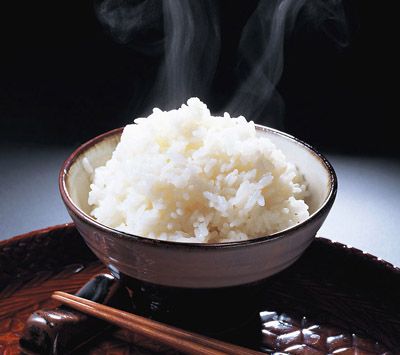What foods can not be eaten in infancy
Everything that belongs to the baby is so delicate. Their soft little hands cannot even hold a candy; their little eyes can't even see the outline of their mother; their fragile stomach often causes them "painful" troubles due to improper eating. Many mothers are often troubled by baby's constipation, diarrhea, and supper. Therefore, in order to protect your child's delicate stomach, we must remember the following four types of foods that are absolutely not eaten by baby babies!
Staple food

Cereals and starchy foods are the baby's food supplements of choice. Many treasure dads will add rice, rice and other cereals and starchy foods to their babies. This is correct. Because cereals and starch are easily digested and absorbed, and are not susceptible to allergies, it is certainly not ruled out that some children are allergic to starch.
However, Bao Baobao mothers tend to choose fine cereals when choosing cereals for their babies. However, in fact, vitamins in fine cereals are often destroyed, especially B vitamins. Vitamin B1 is an essential nutrient for baby's growth and development. The lack of vitamin B1 can cause damage to the nervous system and cardiovascular system, while vitamin B1 is mainly found in the germ and skin of cereals. Excessive grinding will cause a large number of them to be lost. So moms and dads must minimize the loss of vitamin B1 when cooking.
Moms and dads follow several principles when cooking a staple food for their baby:
Coarse grains with collocation;
Do not over-wash rice
Do not eat salad (ie cook the rice until it is half-cooked, then remove and steam);
Do not add alkali (baking soda) when cooking.
2. Foraging
Meat is rich in iron and protein and is considered to be a very nutritious food. Meat protein is rich in lysine, which can supplement the deficiency of lysine in vegetable protein. And cholesterol and fatty acids in meat are necessary nutrients for infants and young children to develop. However, some of the foods listed below cannot be given to the baby in the early stages of baby food supplements.
Higher mercury content fish
Water pollution is now serious in the world. The living environment of marine fish is constantly threatened. The toxins in fish are growing geometrically according to the food chain. Therefore, the carnivorous fish in the deep sea are the most polluted, especially mercury. Mercury is accumulated in the body mainly in the form of methylmercury and may affect the human nervous system, especially in pregnant women and fetuses. The National Food Safety Risk Assessment Center released “Interpreting Measures for Excessive Mercury in Canned Foods for Some Infants and Young Childrenâ€. We can see that there are mercury in canned supplementary foods for brands such as Bein Me and Heinz. Excess levels were due to the fact that these companies used deep-sea sailfish and tuna raw materials.
In the selection of fish, in particular to avoid eating larger fish, including sharks, swordfish, swordfish, eel, tilapia goldfish and tuna, especially big-eyed tuna fish, blue fins Tuna fish and so on.
Egg white
Protein molecules in egg whites are small and can sometimes enter the baby's bloodstream through the gastrointestinal wall. Your baby's gastrointestinal function is not well developed. If you eat egg whites, the protein content is too high, which may cause abnormal decomposition in the intestinal tract. Ammonia may cause protein poisoning syndrome, similar to the symptoms of allergy. Although the probability of this happening is not high, it can be avoided as much as possible to avoid discomfort to the baby.
3, honey
Because honey is not sterilized at high temperatures during the manufacturing process, it may contain Botulinum spores, which may cause botulism in infants under the age of one year. Therefore, honey should be avoided as much as possible.
4, fresh milk
Although fresh milk is rich in nutrients, it is better not to eat before the one-year old baby because the protein in the milk has a large molecular structure that is not easily decomposed and cannot be absorbed by the baby's gastrointestinal tract. And if there is not enough lactase in lactate of some baby's intestines to decompose lactose, it will stimulate the baby's intestine and affect defecation. It may also cause your baby's kidneys to become dehydrated.
Shandong Longze Mechanical Equipment Co.,Ltd , https://www.pelletmachinefactory.com